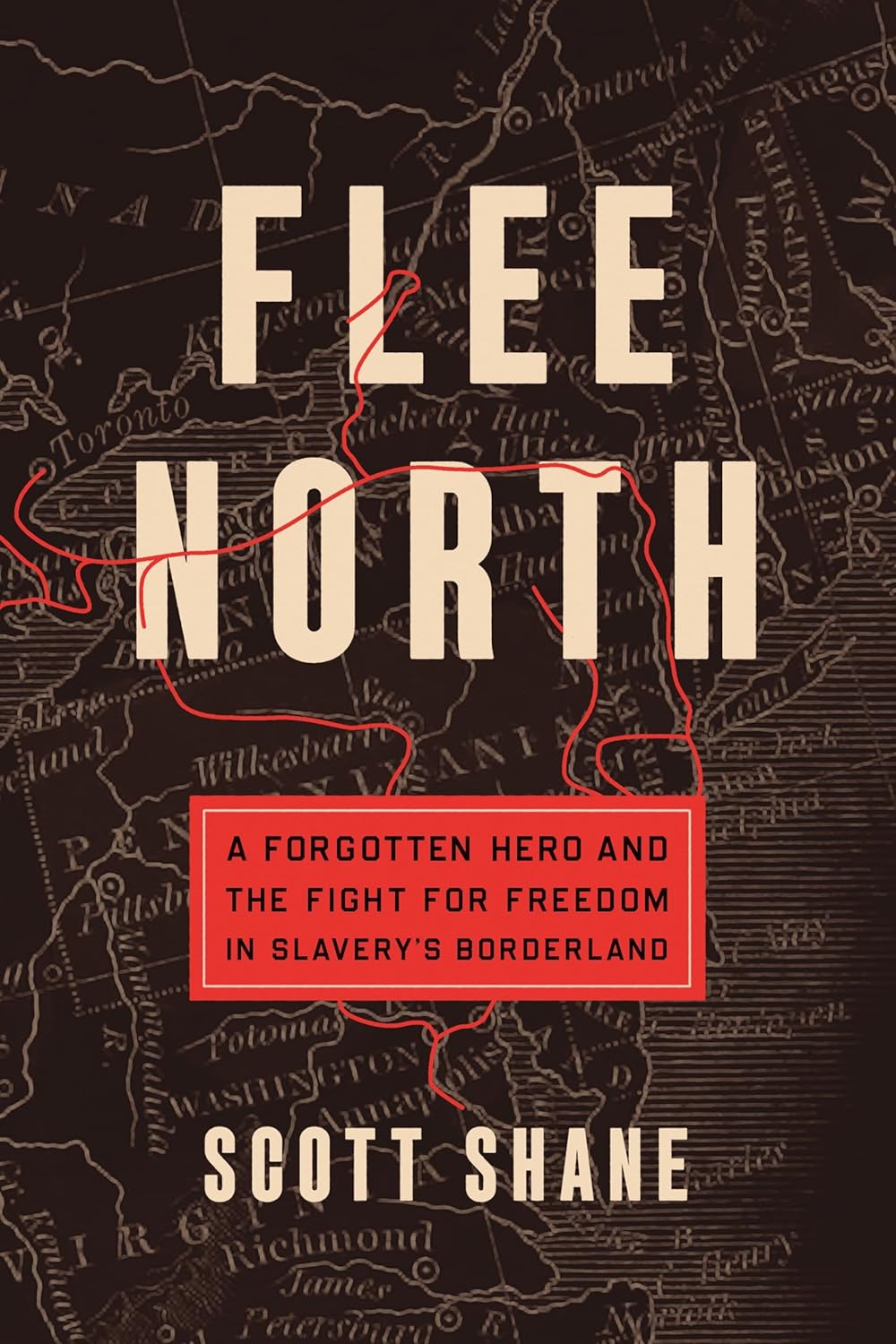Summary | Excerpt | Reviews | Beyond the book | Read-Alikes | Genres & Themes | Author Bio

A Forgotten Hero and the Fight for Freedom in Slavery's Borderland
by Scott ShaneA riveting account of the extraordinary abolitionist, liberator, and writer Thomas Smallwood, who bought his own freedom, led hundreds out of slavery, and named the underground railroad, from Pulitzer Prize-winning author and journalist, Scott Shane. Flee North tells the story for the first time of an American hero all but lost to history.
Born into slavery, by the 1840s Thomas Smallwood was free, self-educated, and working as a shoemaker a short walk from the U.S. Capitol. He recruited a young white activist, Charles Torrey, and together they began to organize mass escapes from Washington, Baltimore, and surrounding counties to freedom in the north.
They were racing against an implacable enemy: men like Hope Slatter, the region's leading slave trader, part of a lucrative industry that would tear one million enslaved people from their families and sell them to the brutal cotton and sugar plantations of the deep south.
Men, women, and children in imminent danger of being sold south turned to Smallwood, who risked his own freedom to battle what he called "the most inhuman system that ever blackened the pages of history." And he documented the escapes in satirical newspaper columns, mocking the slaveholders, the slave traders and the police who worked for them.
At a time when Americans are rediscovering a tragic and cruel history and struggling anew with the legacy of white supremacy, this Flee North -- the first to tell the extraordinary story of Smallwood -- offers complicated heroes, genuine villains, and a powerful narrative set in cities still plagued by shocking racial inequity today.
Flee North is one of my top books of the year. The amount of research Shane undertook to revive this little-known piece of history must have been monumental. And beyond that, the book is simply a ripping-good yarn, at times reading like an action-adventure tale rather than a history or biography...continued
Full Review
 (711 words)
(711 words)
(Reviewed by Kim Kovacs).
 The nonfiction book Flee North recounts how activist and writer Thomas Smallwood encouraged the enslaved individuals he helped escape to relocate to Canada, where slavery was illegal, rather than remaining in the United States, where they might be returned to captivity if caught. Smallwood himself settled in Toronto with his family in 1843 after nearly being apprehended in Baltimore. Canada had only abolished slavery less than a decade before, and only at the behest of Great Britain, who ruled the country at the time.
The nonfiction book Flee North recounts how activist and writer Thomas Smallwood encouraged the enslaved individuals he helped escape to relocate to Canada, where slavery was illegal, rather than remaining in the United States, where they might be returned to captivity if caught. Smallwood himself settled in Toronto with his family in 1843 after nearly being apprehended in Baltimore. Canada had only abolished slavery less than a decade before, and only at the behest of Great Britain, who ruled the country at the time.
European colonial powers began the large-scale transport of enslaved people from Africa in the 16th century. While some of those affected were taken to Europe, most were shipped across the Atlantic in horrifying conditions ...

If you liked Flee North, try these:

by Jesmyn Ward
Published 2024
From Jesmyn Ward—the two-time National Book Award winner, youngest winner of the Library of Congress Prize for Fiction, and MacArthur Fellow—comes a haunting masterpiece, sure to be an instant classic, about an enslaved girl in the years before the Civil War.

A Passionate Mind in Relentless Pursuit
by Noliwe Rooks
Published 2024
An intimate and searching account of the life and legacy of one of America's towering educators, a woman who dared to center the progress of Black women and girls in the larger struggle for political and social liberation.